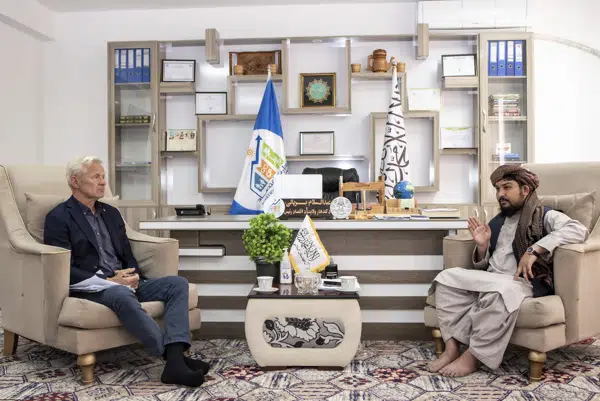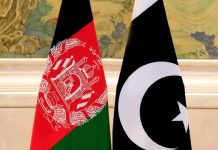KABUL (AP) – The Taliban have agreed to consider allowing Afghan women to return to work in institutions in the southern province of Kandahar, the religious and political heartland of the country’s rulers, the head of a major aid agency said Thursday.
Last December, the Taliban banned Afghan women from working for non-governmental organizations and NGOs for improperly wearing the hijab (Islamic scarf) and breaking gender-segregated rules. In April, it announced that the ban would be extended to UN offices and agencies in Afghanistan. There are exceptions in some areas, such as healthcare and education.
Jan Egeland, secretary-general of the Norwegian Refugee Council, met with officials in Kabul and Kandahar to persuade them to lift the ban on women employees of the organization. “We will immediately begin consultations on a temporary arrangement that will allow our fellow women to work with women and others in Kandahar to work for women and others. We agreed to that,” Egeland told the Associated Press. “If we get a state exemption in Kandahar, we should be able to do the same elsewhere.”
The Taliban announced in January that she was working on a policy to get women back into NGO work. Egeland said earlier this week he was told by key officials that the guidelines were nearing finalization. However, it could not disclose the schedule or details in response to inquiries.
This interim arrangement will apply while statewide guidelines are being developed. He said the preliminary agreement would cover all departments and all programs of the Norwegian Refugee Council. After the Taliban took power in August 2021 and the economic collapse that followed, aid groups have provided Afghans with food, education and medical care. However, distribution was severely affected by the December decree.
Egeland said he made it clear to the Taliban that they must be able to provide the same support to women as they did before the ban.
Thanks to years of humanitarian diplomacy in Afghanistan, the Norwegian Refugee Council negotiated with the Taliban to provide education and assistance to the areas they controlled during the war, leading to positive feedback from Kandahar. was opened, he said.
“They knew we had never broken any rules when it came to Afghan culture. Egeland told the Associated Press. He said the organization would not hire an all-male team or do only men’s ancillary work.
Egeland said there was consensus in the economy ministry, which oversees Afghan NGOs, that a regional agreement could pave the way for a national agreement.
“I strongly feel that they understand that if the relief effort is interrupted for a long period of time, they may not come back.
Since December, the Taliban have repeatedly told senior humanitarian officials visiting Afghanistan that the restrictions on NGOs are a temporary suspension, not a ban.
Saturday, January 31, 2026
More
© London Post, All Rights Reserved by Independent Media Group UK Limited.






